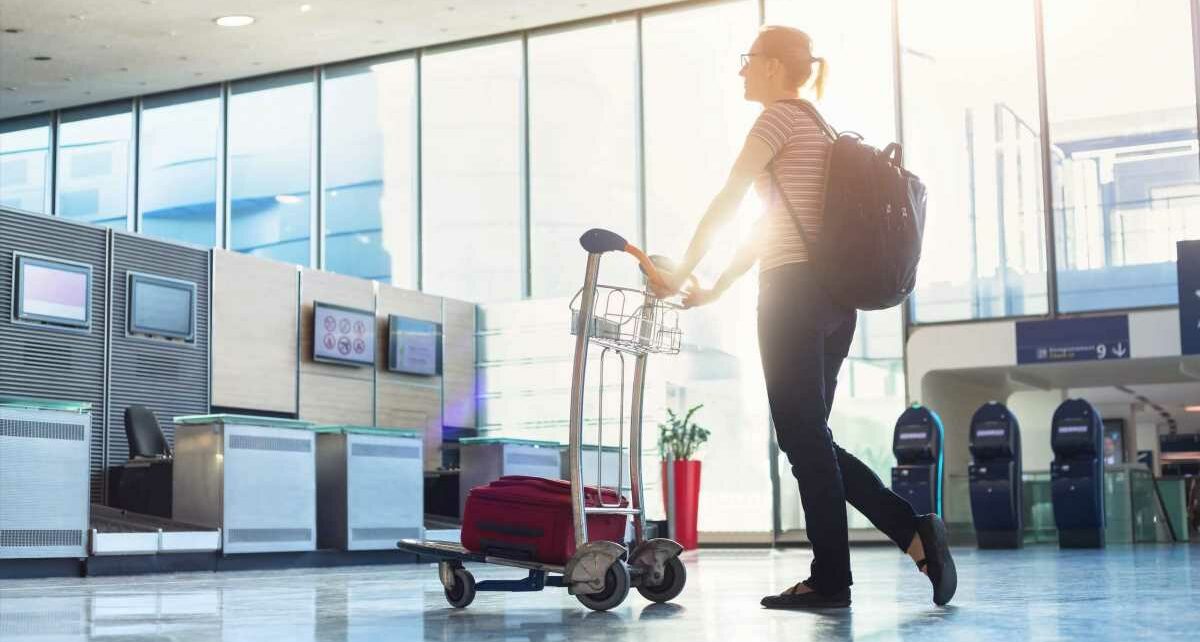UNIVERSAL Credit claimants going on holiday soon should make sure they know about a rule that could see payments stopped.
It comes as the summer holidays are fast approaching and many of us will be going away.

But if you claim Universal Credit then you have to tell the Department of Work and Pensions (DWP) that you're heading away.
The DWP also expects claimants to do at least 35 to 37 of hours a week looking for a job – this includes while you're on holiday.
Some people on Universal Credit are required to look for work each week and if that's you then you'll want to make sure you're following the rules.
This usually applies to those in the "intensive work group" of Universal Credit.
Read more in money

I’m a money expert – what the huge change to Universal Credit childcare means

I’m a Benidorm expert – Here’s how partying can land you a £1,000 fine
You may also be asked to provide evidence that you have looked for work during the time you're abroad.
If you don't, you could see your claim stopped or reduced, and you might even have to cut your holiday short.
Plus, you might have to pay a fine on top worth between £350 and £5,000.
This is because not reporting a change in circumstances can be classed as benefit fraud.
Most read in Money

We won £1million EuroMillions jackpot… before a devastating twist

Major pharmacy chain to close 237 branches in supermarkets

Thousands warned to look out for letters in weeks – you could get a £3.5k boost

Exact dates in June thousands can get free cash payment worth up to £370
If you land yourself in this situation, you can see benefits frozen while your claim is being investigated and you might even have to go to court.
How long can I stay abroad and still receive benefits?
There are limits on how long you can stay abroad and carry on receiving your benefits.
But the criteria depends on which specific benefit you are on.
If you are on Universal Credit, you can stay abroad for one month and carry on receiving payments, given you've told your work coach you're going away and you carry on meeting the conditions of your claim.
That means if you are in the intensive work group and have to spend a minimum amount of hours per week looking for a job, you have to continue doing this.
There are exceptions to the one-month rule though – such as if a "close relative" dies while you are abroad and it is not deemed reasonable for you to return to the UK.
Meanwhile, you can carry on claiming Universal Credit for up to six months if you have gone abroad for medical treatment.
The criteria is different for other benefits.
For example, if you are on Personal Independence Payment (PIP), you can keep claiming the benefit if you're abroad for up to 13 weeks, or 26 if it's for medical treatment.
You should check out the government's website for more details on the rules for each benefit.
How do I report a change in circumstances?
How you report a change in circumstances depends on the benefit you are receiving.
If you are claiming Universal Credit, you can record any changes on your online journal or contact the helpline on 0800 328 5644.
You can also get in touch with your local Jobcentre Plus.
Meanwhile, if you receive Personal Independence Payment (PIP), you have to contact the enquiry line on 0800 121 4433.
You can also get someone to call on your behalf, but you'll need to be with them when they phone up.
What is Universal Credit?
Universal Credit is a welfare scheme that was designed to combine a number of old "legacy benefits" into a single monthly payment.
Whether you are eligible will depend on your individual circumstances.
You may be eligible if you meet all of the following criteria:
- You’re on a low income or out of work
- You’re 18 or over (there are some exceptions if you’re 16 to 17)
- You’re under State Pension age (or your partner is)
- You and your partner have £16,000 or less in savings between you
- You live in the UK
How much is Universal Credit?
Universal Credit payments are made up of a standard allowance and then various additional payments that depend on your circumstances.
This is how much you will get as your standard allowance each month:
- Single, under 25 – £292.11
- Single, 25 or over – £368.74
- Couple, joint claimants both under 25 – £458.51 (for both)
- Couple, joint claimants, one or both 25 or over – £578.82 (for both)
You may also get additional payments depending on your circumstances.
You may be able to get a top-up if you have children:
- For those with a first child born before April 6, 2017, the extra amount is £315
- For those with a child born on or after April 6, 2017 or second child and subsequent child, the extra amount is £269.58
- For those with a disabled child, the lower rate additional payment is £146.31 and the higher rate is £456.89
If you have a disability you could get an extra amount depending on your circumstances:
- For those deemed to have limited capability for work, the extra amount is £146.31
- For those deemed to have limited capability for work or work-related activity, the extra amount is £390.06
Universal Credit claimants can get an additional amount if they're caring for a severely disabled person for at least 35 hours a week.
The amount you get is £185.86.
Read more on The Sun

Urgent warning to check sunscreen bottles after woman reveals horror ‘burn’

I’m a fairground whizz – how to win at the games, despite some being rigged
You can also get an increased work allowance:
- The higher work allowance (no housing amount) for someone claiming Universal Credit with one or more dependent children or limited capability for work is £631
- The lower work allowance for someone claiming Universal Credit with one or more dependent children or limited capability for work is £379
Do you have a money problem that needs sorting? Get in touch by emailing [email protected]
Source: Read Full Article

